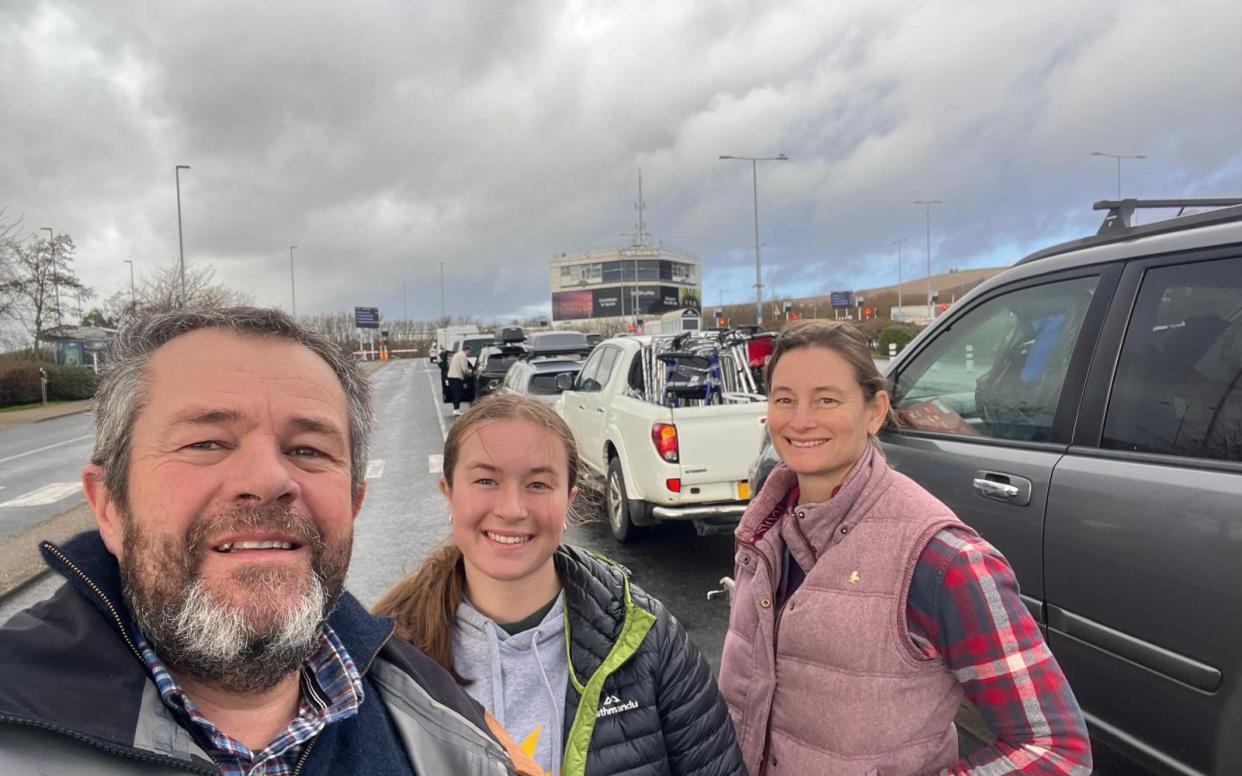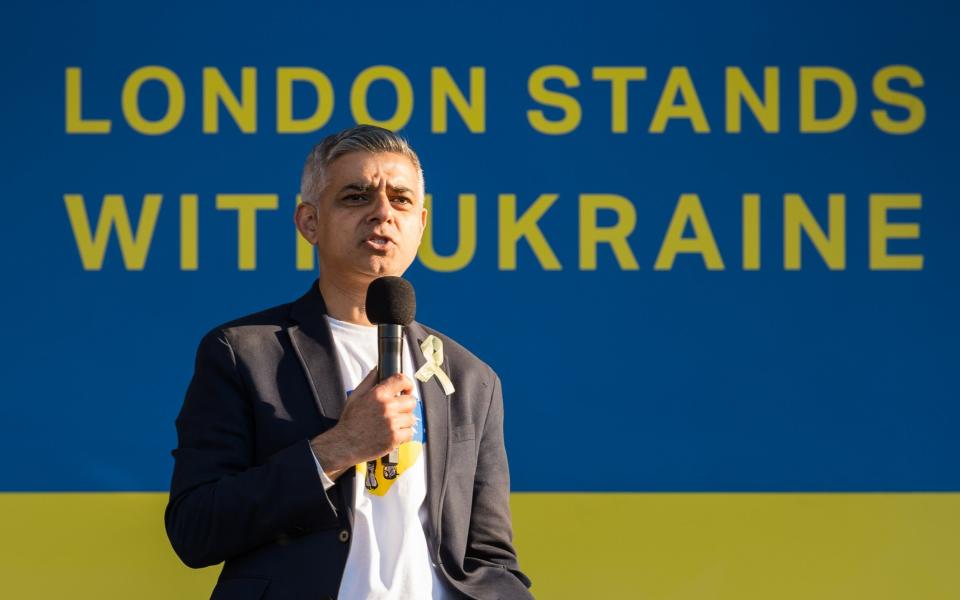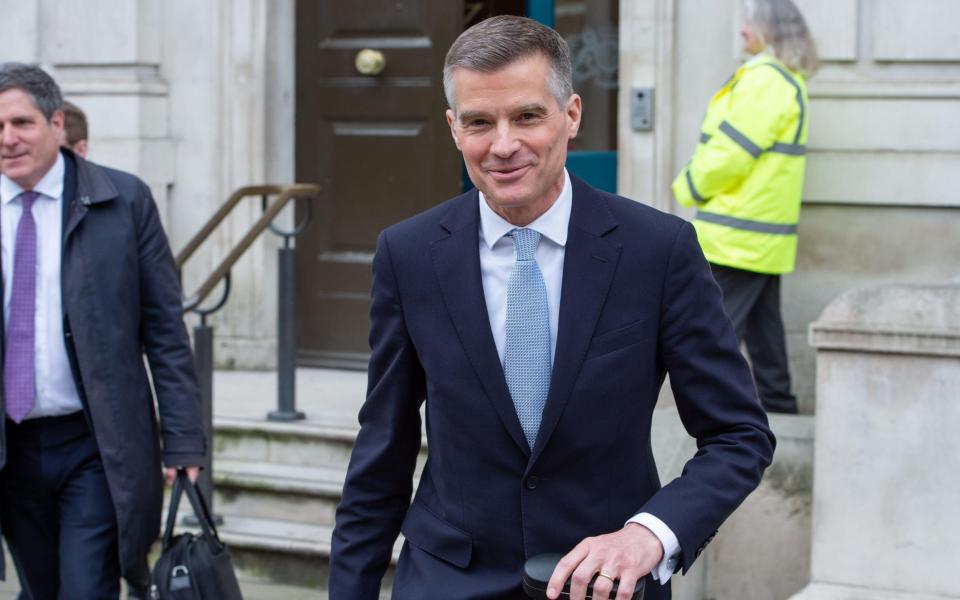Sadiq Khan charity slammed by Londoners driving Ulez cars to Ukraine

Fed-up Londoners are driving their own cars to Ukraine amid accusations that Sadiq Khan is dragging his heels on the official Ulez scrappage donation scheme.
Mr Khan said in February that he would allow cars handed in under the London Ulez scrappage scheme to be donated to Ukraine, following intense public pressure.
Yet volunteers, who had been donating cars to Ukraine from before Mr Khan set up Transport for London’s official scheme, claim they have been left with no choice but to take matters into their own hands.
They accuse the charity running Mr Khan’s scheme of failing to clearly communicate with them and causing delays to the scheme.
It comes after Mark Harper, the Transport Secretary, suggested earlier this year that Mr Khan was blocking the exports after initially having claimed a legal barrier existed when the idea was first put to him.
A number of volunteers have spoken to The Telegraph about problems with British-Ukrainian Aid (BUA), the charity Mr Khan appointed in February to partner with TfL to donate non-Ulez-compliant cars to the Eastern European country.
Londoners who hand their cars in under the Ulez scrappage scheme not only receive £2,000 towards a Ulez-compliant replacement but can also tick a box to say they want their old vehicle donated to Ukraine.
BUA receives lists of these donated cars, picks them up, and sends them to Ukraine whenever medical and humanitarian organisations request them.
Yet James Baird, 53, a farmer from Littlehampton who is involved in separate, pre-existing efforts to donate British cars to Ukraine, said he was reaching the end of his tether with Sadiq Khan’s scheme.
He claims the responses he gets to messages sent to BUA are infrequent and, he says, often do not contain enough information to organise deliveries of donated cars.
No proper process
Mr Baird accused BUA of having no proper process in place for coordinating donated cars and organising deliveries to Ukraine.
“I actually suspect there’s something going on behind these closed doors that I don’t understand,” he said, “because the scheme is not designed, not being administered, in a way that it can function.”

Adding that he plans to drive a privately donated car to Ukraine by himself next week rather than continue trying to get a response from BUA, Mr Baird said: “I’ve sent more than 30 vehicles over there now.
“And we’re passionate about getting them to medics who need them, and they could do with them yesterday.
“And so we do feel a sense of urgency and responsibility.”
The BUA scheme was intended to add an official stamp of approval to the existing donation networks set up by British and Ukrainian volunteers.
Requests for cars come through a variety of formal and informal means, sources have said, including by text messages between Ukrainian medics and their British contacts.
The latter then organise drivers and export paperwork, and arrange rendezvous points for Ukrainians who collect the vehicles.
Sometimes those who are seeking the vehicles are military medical personnel who need permission to leave the front line, sources said.
Chris Pool, a former lawyer and co-founder of Liberty Trucks Ukraine, which has delivered more than 350 trucks and ambulances from the UK, said these informal donation networks are well-established.
Mr Pool claimed that BUA appears to him to be excluding volunteers with existing networks from its own attempts to help Ukraine.
“There are independent UK volunteer groups who, for over two years, have been buying vehicles in the UK and donating them to the army, medics and charities in Ukraine – over 1,500 between us.

“The original proposal was to leverage the existing operations and networks of these groups to implement a scheme quickly and at scale, avoiding a top-heavy bureaucratic and centralised approach.
He claimed: “TfL elected to work exclusively with one charity, and that charity decided to run a centralised process, excluding these volunteer groups.”
‘Overly cautious’
He added that BUA, a registered charity, has been “overly cautious” in how it engages with volunteers so far.
Richard Lofthouse, a volunteer with the Car for Ukraine campaign who was one of the leading voices calling for the Ulez scrappage scheme to send serviceable cars to Ukraine, echoed Mr Baird’s concerns.
He said he thinks Mr Khan’s scheme is “risky” because its sole partner, BUA, is not delivering enough cars.
“TfL should sign a mirror contract with a second charity to open it up a bit and push through more vehicles more quickly. I suggested it to them ages ago,” he said.
A TfL spokesman said its scheme is intended to supplement, rather than replace, existing volunteer donation networks, adding that UK charities cannot donate vehicles for military use.
“We chose British Aid to Ukraine (BUA) as a trusted intermediary following a recommendation from the Ukrainian Embassy based on similar initiatives the charity has worked on,” said the spokesman.
“BUA has already processed a number of vehicles for which successful applications have been made through the scrappage scheme and they will shortly be delivered in bulk.
“Part of the process involves ensuring that the vehicles are matched with suitable recipients in Ukraine.”
Sadiq Khan’s representatives and British-Ukrainian Aid were contacted for comment.

 Yahoo News
Yahoo News 
